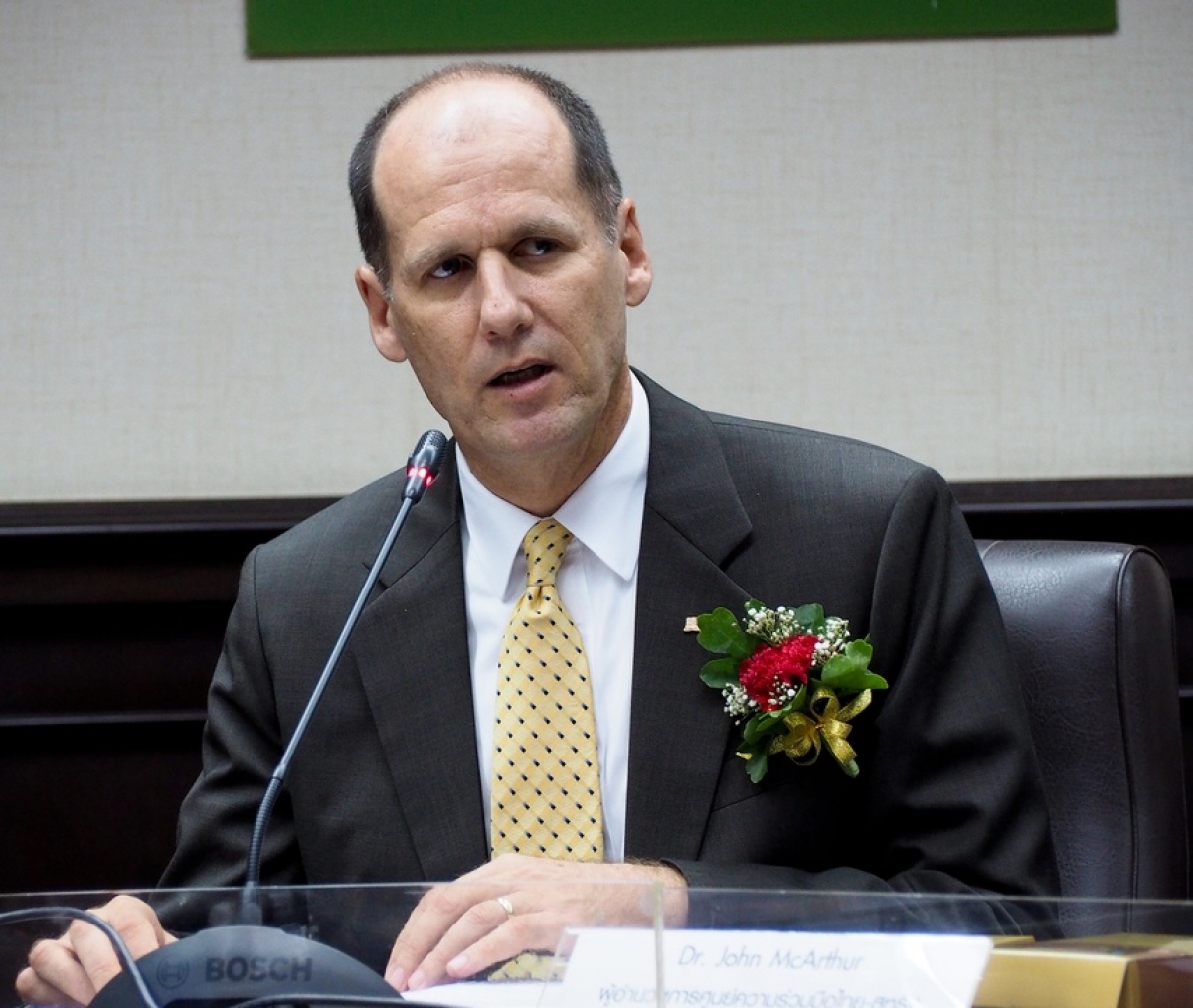Vietnam, US enhance health security partnerships across region
Located in the heart of Hanoi, one of the priorities of the United States Centers for Disease Control and Prevention (CDC) Southeast Asia Regional Office will be to co-ordinate COVID-19 prevention and control activities throughout the region.

The CDC Southeast Asia Regional Office’s primary focus will be to help strengthen health security partnerships across this region, both at a bilateral level and with regional partners, said Dr. John MacArthur, regional director of CDC Southeast Asia, at a recent press conference that took place over the phone.
According to Dr. MacArthur, the nation plays a key leadership role in ASEAN and in the Global Health Security Agenda, having led one of the action packages for that agenda. Indeed, the Government has been very welcoming and supportive in working with CDC.
“When I talked about CDC’s 70-plus-year relationship in Southeast Asia,that actually began with a trip from malaria experts from CDC to Vietnam to work in the northern part of the country on malaria control. So we value our longstanding relationship with the people of Vietnam and we also value the 23-year history of our bilateral office here in Vietnam. We also have a strong history of working collaboratively with the Government of Vietnam and the people of Vietnam on such important diseases as HIV, influenza, and bird flu back when that was circulating, SARS, and others. And so we have this strong, strong relationship,” he said.
“The Government has been very welcoming and supportive in working with us, and I mentioned that at our launch on Wednesday we had the deputy prime minister, we had the vice minister of foreign affairs, and we had the health minister all in attendance of that launch, and I think that shows the strong, strong political commitment we have.
We are also looking long-term, and so we see this not as a five-year or ten-year commitment, but we think that the strategic relationship on health security between Vietnam and the United States is something that we will work together in a long-term fashion and we see support from the people of Vietnam for that,” stated Dr. MacArthur.
One of the key goals of the regional office will be to help to co-ordinate the regional platform.
The regional office will therefore strive to build relationships with regional partners, support countries in the region that previously had a limited CDC presence, and enhance cross-country collaborations. The regional office will be working to strengthen core health security capacities in areas such as surveillance, data use, laboratory science, workforce development, and emergency preparedness.
Regarding the reason for choosing Vietnam as the location for the CDC’s Southeast Asia Regional Office, Dr. MacArthur said, “Vietnam was selected as a regional platform because of the successful relationships and the infrastructure developed through programs that we’ve had for many years here in the country, including PEPFAR, or the President’s Emergency Plan for AIDS Relief, and our global health security work. We recognize that Vietnam is an active participant in regional bodies such as ASEAN. They have been very active in the Global Health Security Agenda as well. The Vietnam Ministry of Health is supportive of this regional focus that CDC has and is very interested in working with us.”
He added, “Vietnam did a fantastic job early on in containing COVID-19. I think with the entrance of the Delta variant, it’s a little bit more challenging. They are in the process now of introducing vaccines to their population and rolling that out. Where Vietnam or other countries source their vaccines is an individual country choice, so we don’t try to influence that. We only promote the use of safe and efficacious vaccines.”
The US has so far donated over 23 million vaccines for emergency health and humanitarian use across ASEAN, including six million doses to the nation. They have also pledged $500,000 to the ASEAN COVID-19 Response Fund and 500 million additional Pfizer vaccines to the Gavi for distribution through COVAX. This will represent the single largest vaccine donation in history and essentially half of what the G7 commitment has been thus far.

